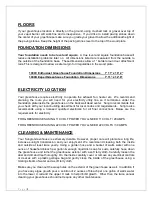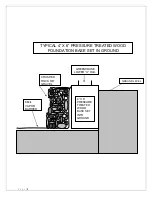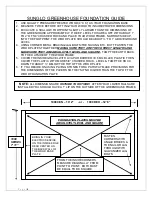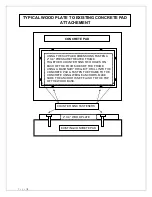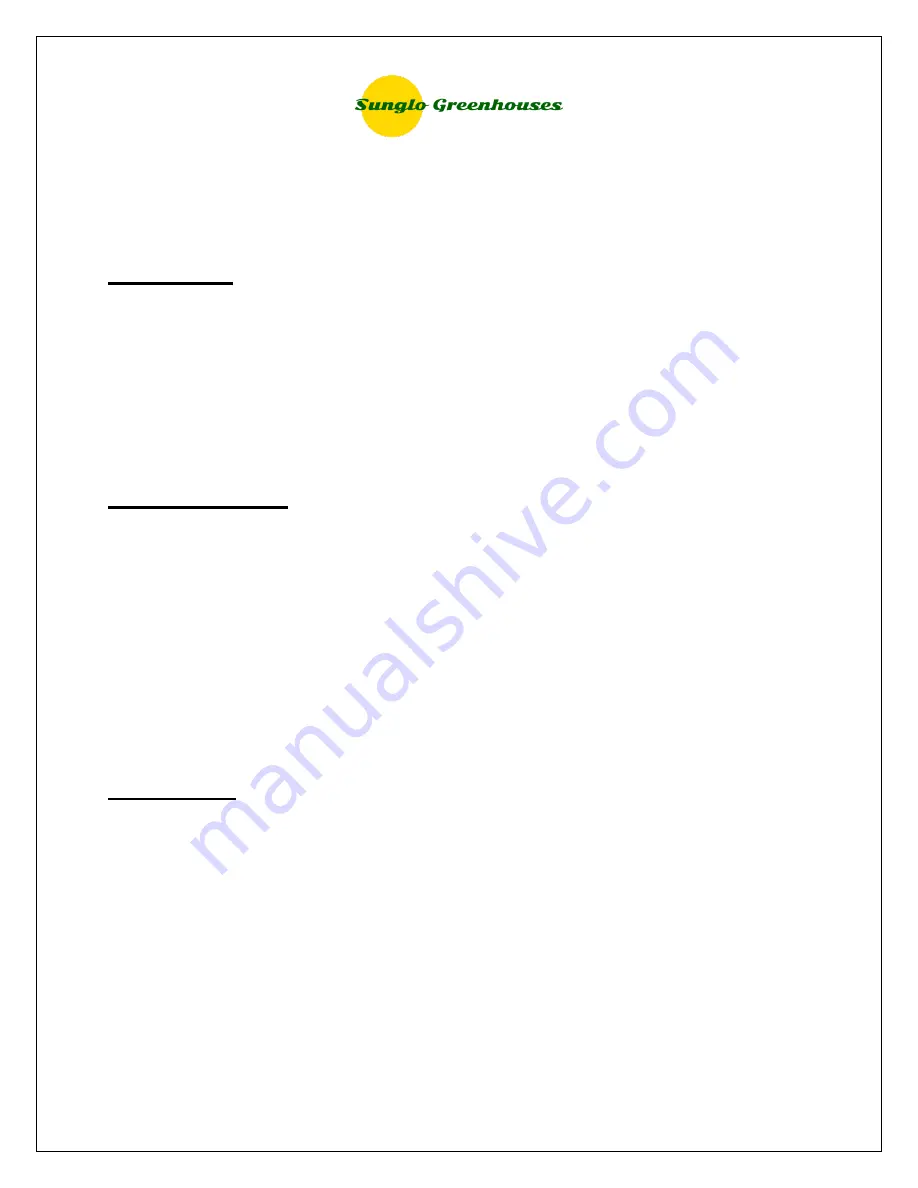
P a g e
|
1
FREESTANDING GREENHOUSE
FOUNDATION GUIDE
LOCATION
The most desirable location for your greenhouse is placing the greenhouse so it is covered by
the shade pattern of a deciduous, (leaf bearing), tree during the hottest time of the day during
the hotte
st time of the year. That’s ideal. Barring this, morning and afternoon sun is best with
shade in the early afternoon to help cool the greenhouse and surrounding ground. If these
conditions do not exist you will need to use an external shade cloth draped over the
greenhouse, fastened with bungee cords to the foundation base to help reduce solar gain during
the late spring and through the summer.
THE FOOTINGS
IT IS CRITICALLY IMPORTANT YOU START WITH A SQUARE, SOLID AND LEVEL
FOOTING TO ATTACH YOUR GREENHOUSE.
Our greenhouses are designed to be attached
to a wood sill plate. If you decide to locate your greenhouse directly on the ground use a 4” x 6”
pressure treated wood sill plate set on edge and buried in the ground with approximately ½” to
1” of the wood plate showing above the ground. We recommend using pressure treated wood
due to its long life span. You can use high quality cedar or redwood, however these will not
have the same life span as pressure treated products.
If there is an existing concrete pad which you can use, you will still need to attach a wood plate.
Fasten a 2” x 4” pressure treated wood sill plate to the concrete pad using concrete wedge
anchors, or similar fasteners. Make sure the fasteners are counter sunk into the wood so they
are level to the top of the wood plate.
DRAINAGE
Drainage needs to be considered to remove excess water from your greenhouse site. If you
have poor drainage you may need to install a “French” drain. This is a simple bed of crushed
rock or gravel with perforated piping graded and buried below your greenhouse to lead water
away from your site.
If your site has high moisture content you will need to install a vapor barrier. The vapor barrier is
a 6 mil black plastic.
Do not use a weed block. These will not prevent excess humidity from
entering your greenhouse.
Line the interior of your foundation base right up to the wood with
the plastic and cover the plastic with crushed rock, paving stones etc. This will prevent the
greenhouse from wicking up excess ground moisture into the greenhouse. This is very
important in wet areas. Afterwards,
if the greenhouse is too dry, you can “poke” a couple of
holes through the plastic to allow some ground moisture to enter the greenhouse.
If you are using a concrete pad make sure the pad has been sealed with a concrete sealer prior
to the installation of your greenhouse.


